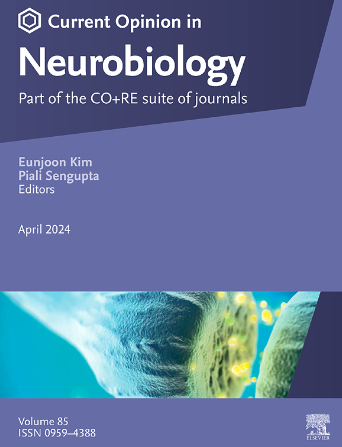Cardiac vagal motor neurons
IF 5.2
2区 医学
Q1 NEUROSCIENCES
引用次数: 0
Abstract
Since their discovery five decades ago, cardiac vagal motor neurons (CVNs) have been studied for their roles in autonomic control of cardiac function. However, it is only within the past decade that our understanding of CVNs has rapidly progressed. Driven by technological advances in neuroscience, novel findings are revealing genetic markers of CVN’s subpopulation in the nucleus ambiguus (CVNNA), resolving controversial roles of CVN in the dorsal motor nucleus of the vagus (CVNDMV), and dissecting the complexity of CVN-related neural circuitry. The roles of CVNs have also expanded in the mechanisms of disease pathophysiology beyond the typical autonomic disorders, highlighting the therapeutic potential of targeting CVNs. In this review, we discuss recent advances in CVNs subtypes, neural circuits, and roles in cardiometabolic disease and mental health-related disorders pathophysiology. We also present current challenges and a prospective outlook on the field.
心脏迷走神经运动神经元
自50年前发现心脏迷走神经运动神经元(CVNs)以来,人们一直在研究其在心功能自主控制中的作用。然而,只有在过去的十年里,我们对CVNs的理解才迅速发展。在神经科学技术进步的推动下,新发现揭示了模糊性核(CVNNA)中CVN亚群的遗传标记,解决了CVN在迷走神经背运动核(CVNDMV)中的争议作用,并剖析了CVN相关神经回路的复杂性。CVNs的作用也在疾病病理生理机制中扩展,超出了典型的自主神经紊乱,突出了靶向CVNs的治疗潜力。在这篇综述中,我们讨论了CVNs亚型、神经回路以及在心脏代谢疾病和精神健康相关疾病病理生理学中的作用的最新进展。我们还提出了当前的挑战和对该领域的前景展望。
本文章由计算机程序翻译,如有差异,请以英文原文为准。
求助全文
约1分钟内获得全文
求助全文
来源期刊

Current Opinion in Neurobiology
医学-神经科学
CiteScore
11.10
自引率
1.80%
发文量
130
审稿时长
4-8 weeks
期刊介绍:
Current Opinion in Neurobiology publishes short annotated reviews by leading experts on recent developments in the field of neurobiology. These experts write short reviews describing recent discoveries in this field (in the past 2-5 years), as well as highlighting select individual papers of particular significance.
The journal is thus an important resource allowing researchers and educators to quickly gain an overview and rich understanding of complex and current issues in the field of Neurobiology. The journal takes a unique and valuable approach in focusing each special issue around a topic of scientific and/or societal interest, and then bringing together leading international experts studying that topic, embracing diverse methodologies and perspectives.
Journal Content: The journal consists of 6 issues per year, covering 8 recurring topics every other year in the following categories:
-Neurobiology of Disease-
Neurobiology of Behavior-
Cellular Neuroscience-
Systems Neuroscience-
Developmental Neuroscience-
Neurobiology of Learning and Plasticity-
Molecular Neuroscience-
Computational Neuroscience
 求助内容:
求助内容: 应助结果提醒方式:
应助结果提醒方式:


